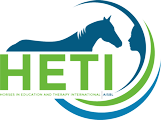Leisure Educational Activity Assisted by Horses as Introduction to Therapy
€5.00
| Author | Lorenzo Lucarelli, Montse Cuesta, Maria Barajas |
|---|---|
| Year | 2009 |
Nowadays in Catalonia many riding clubs offer a hippotherapy or equestrian rehabilitation service; ‘though none, offer psychological assessment, and very little educational therapy is provided in the hippotherapy centres.
Therefore we decided to organise educational and leisure group events for psychic disabled as an introduction to the further organisation of therapeutic activities, which we hope to have recognised by our Government in a reasonably short time (few years), since in other European Countries they are already integrated in to the Public Health System.
Our interdisciplinary team was composed of a psychologist, a nurse and a therapeutic riding instructor. We also wanted to integrate into the team a social educator and a physiotherapist, but we couldn’t afford so many professionals, so we received the voluntary help of some physiotherapy students, and the role of the social educator was played by the therapeutic riding instructor who is ending his specialisation in ethics, together with the psychologist who has several years experience working in the integration and social education field.
We organised two group experiences of an example therapy session for psychic disabled with 16 people affected by different mental disabilities: Downs syndrome, cerebral palsy, brain damage and others, making the disabled clean and dress the horses, lead them by the rope, and then ride them moving straight, to the sides, upwards and downwards for a few hundred meters.
Following the first two experiences we started a cycle of 6 sessions of psychological treatment assisted by horses for 4 of the 16 participants, who expressed the will to follow our therapy. They do one session per month, so the final outcome is not yet known, since the programme is not yet ended.
What we mean to report here is that in the leisure sessions we noticed a great effect on the behavior of all participants: they all increased their level of activity and communication, they all reacted positively to the experience and tended to be better and more cooperative within the group activities not just during the experience in the riding club, but also the following few days back at the institution where they meet daily.
Furthermore, 25% of the participants have felt and understood the positive effect of the riding session so much that they have asked to do it regularly and in depth.
We have reached the conclusion then that the leisure experience is to be considered a good way to involve psychical disabled people into a horse assisted therapy programme.

